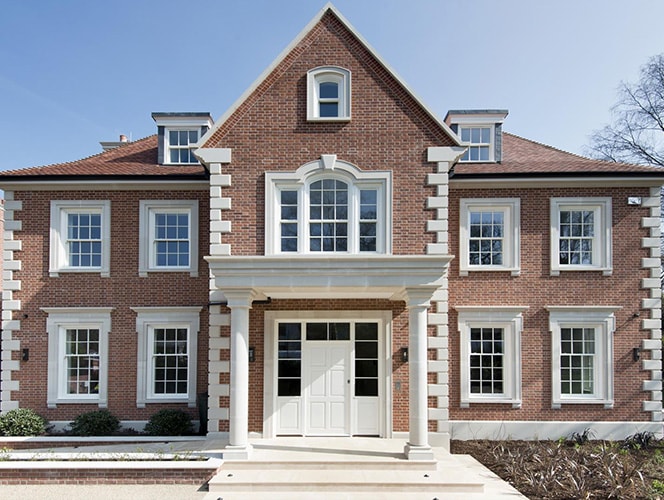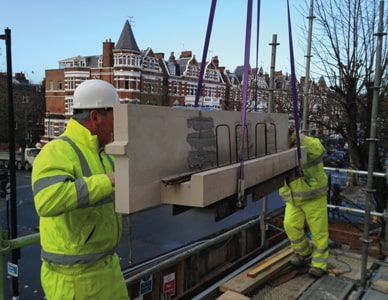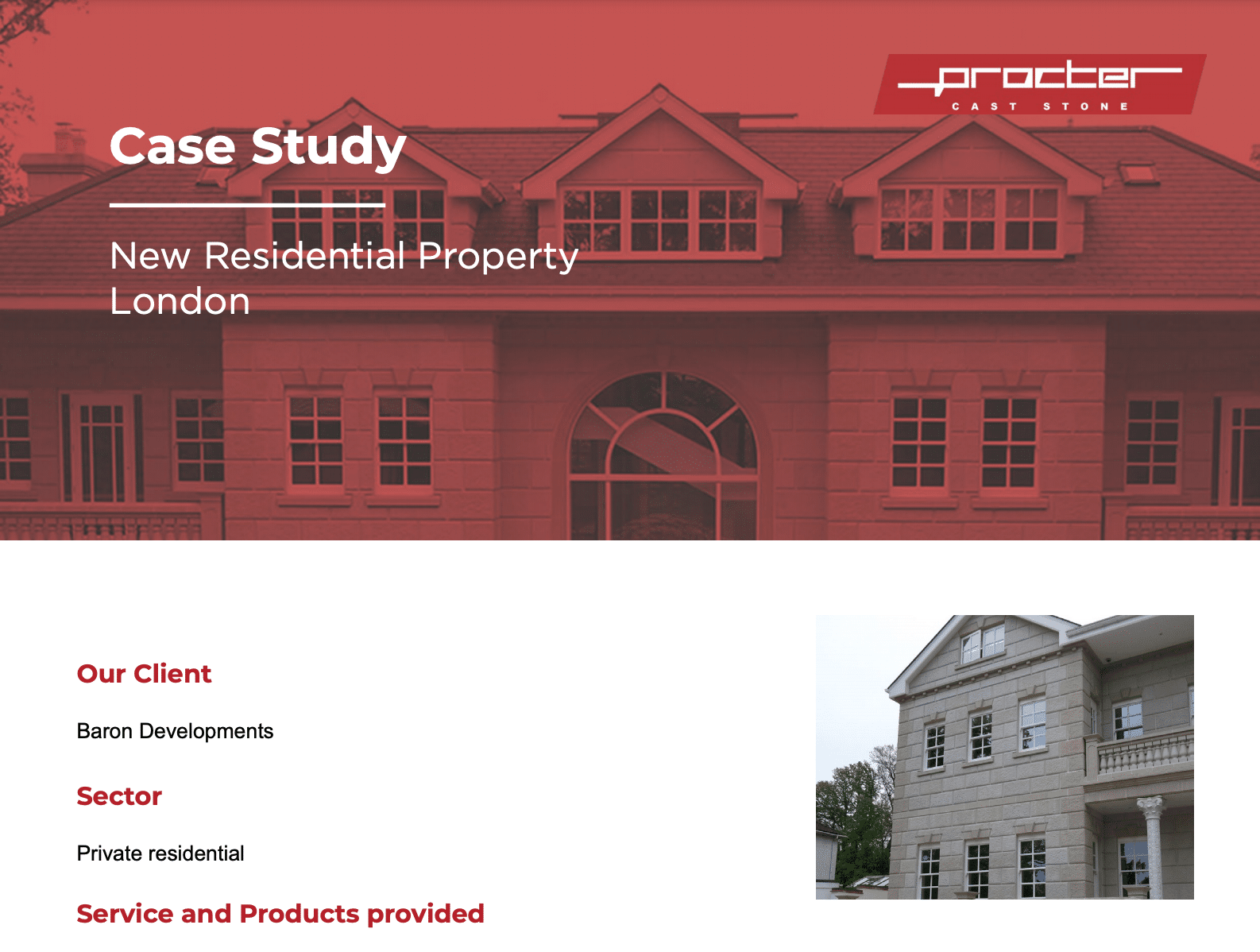How Cast Stone Can be Used to Enhance Self-build Projects
Cast stone is a remarkably versatile construction material that is suitable for all types of the self-build project including renovations, refurbishments, extensions and new-builds. While it is often used to replicate natural stone features on period properties, cast stone is equally appropriate for adding striking details to contemporary designs. Furthermore, cast stone complements brick-faced, rendered block-built and rendered timber-framed properties. Benefiting from reliable deliveries and being easy to design with and install, cast stone offers maximum impact for minimum effort and cost.
Sometimes referred to as reconstituted stone or artificial stone, cast stone is manufactured in wooden moulds created from the architect’s drawings. Depending on the product and finish required, cast stone is made from a semi-dry mix of white and/or grey cement with natural or manufactured sands. The appearance of natural stone is achieved with crushed natural stone, well graded natural gravels and mineral pigments. A waterproofer is also added to minimise moisture absorption and improve resistance to frost damage. On larger components, a coloured facing mix is used on the outside of the mould, with a higher-strength, non-coloured backing mix in the interior. Cores are sometimes used to reduce the volume of cast stone used and, therefore, the weight of the final product; reinforcement can also be incorporated to enhance the structural strength. Additionally, bosses for lifting eyes can be set within the casting to ease handling on site. In extreme circumstances, cast stone units can be manufactured and delivered to the site within approximately two weeks, provided the mould is already available.
Because the moulds can be reused almost immediately, production of multiple identical units is very cost-effective. But even for one-off units, cast stone is an economical alternative to natural stone. However, manufacturers such as Procter Cast Stone also offer extensive ranges of standard products that can be delivered from stock or manufactured to order in a variety of standard or bespoke colours. Standard products include columns, heads, keystones, door surrounds, window surrounds, heads, cills, bays, bullseyes, gables, gable vents, balustrade, canopies, porticos, arches, cornices, steps, string courses, ashlar, copings, pier caps, spheres, corbels, and name and date stones. Cast stone is an excellent way to add individuality to a property very cost-effectively, plus it enhances the resale value.
Because cast stone is manufactured rather than quarried and dressed, reliable deliveries can be scheduled. If circumstances mean that a project is delayed, Procter Cast Stone can also reschedule delivery of the cast stone units to avoid them being stored on site and being at risk of accidental damage.
Installation of cast stone units is very straightforward so long as care is exercised; no specialist skills are required beyond those for bricklaying, and no specialist equipment is necessary (unless lifting gear is required for heavy units). After installation, cast stone weathers in the same way as natural stone. It can also be cleaned or repaired, and conventional masonry fixings can be used to attach other items. On request, Procter Cast Stone can provide more information about site handling, installation and cleaning.
Products for use in compression – such as quoins, string courses and walling units – can be structural, but cast stone lintels and other units that might experience tensile loads should be used in conjunction with a suitable structural element. ProcterCast Stone can provide detailed advice relating to the design of cast stone units, not only in relation to structural considerations but also to enable production costs to be minimised.
For those wishing to find out more about cast stone, Procter Caststone has a stand at BuildStore’s National Self Build & Renovation Centre in Swindon, the UK’s only permanent centre for self-builders and renovators (see www.buildstore.co.uk). Here visitors can see examples of cast stone products and, by appointment, meet a member of Procter’s staff to discuss cast stone in general and individual projects in detail. Alternatively, arrangements can be made to view the manufacturing process at Procter Caststone’s factory in Garforth, Leeds, where design options and project details can be discussed.
As well as these opportunities for one-to-one discussions, Procter Caststone also has a wealth of information available on its website at proctercaststone.co.uk. This includes a cast stone brochure, a specifier’s guide to cast stone, product drawings and an illustration of the standard colours available. In addition, there are case studies, a photographic gallery that shows a wide variety of cast stone applications. Whatever plans self-builders have in mind for cast stone, Procter Cast Stone can provide the technical and design support to help them realise their ideas.
To make an appointment to meet someone at either the factory or the BuildStore’s National Self Build & Renovation Centre telephone us or email info@proctercaststone.co.uk



